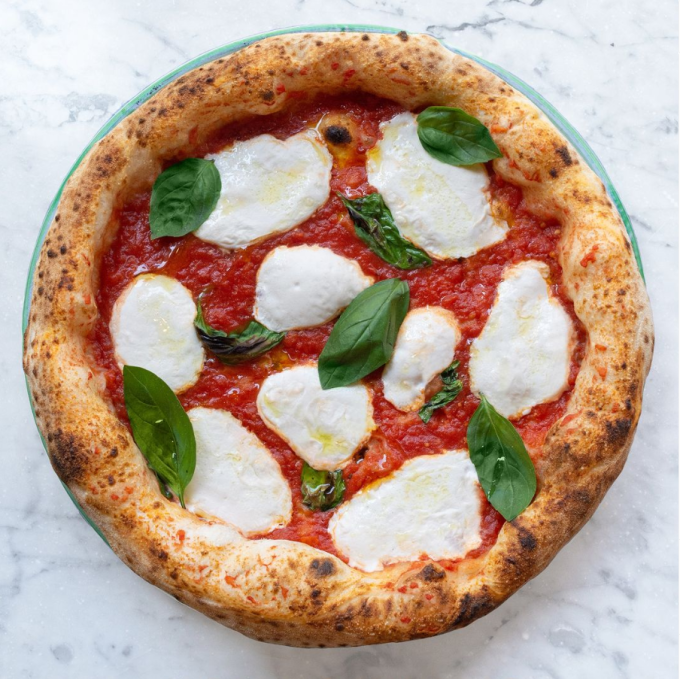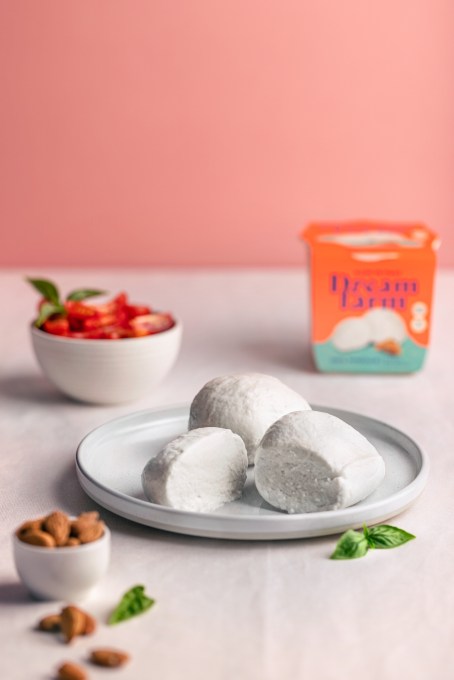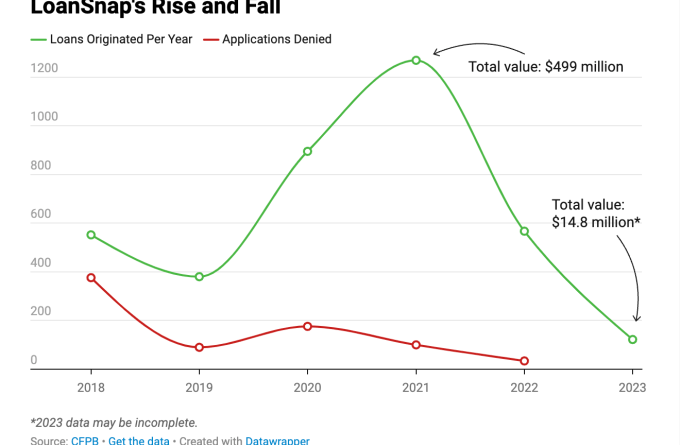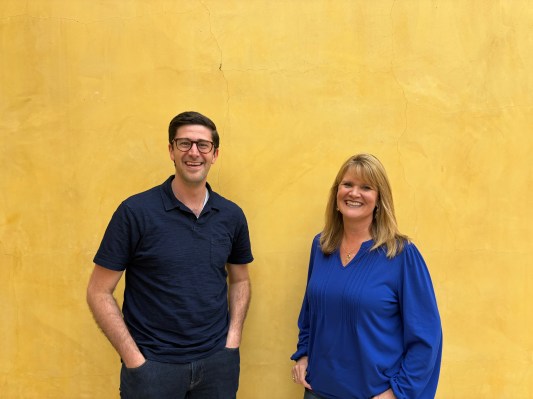
[ad_1]
Vegan cheese isn’t usually anything to write home about, in terms of taste and texture. Dreamfarm, a startup based in Parma, in the Food Valley of Italy, is hoping to change that. It’s cooked up a plant-based mozzarella using a base of fermented almonds, and just a handful of other ingredients, which it reckons does a far better job of mimicking actual mozzarella than the average vegan cheese alternative.
As with traditional (quality) dairy-based mozzarella, Dreamfarm’s plant-based cheese comes as a ball suspended in liquid — so you’re not buying a bag of mozzarella-flavored cubes or shredded bits. (And the startup says it has a patent on the process used to create this faux “mozzarella in liquid” using a blend of vegan ingredients.) The product also boasts an ‘A’ Nutri-Score, with lower levels of fat, saturated fat and salt than dairy-based mozzarella. (Albeit, it’s also lower in protein.)
“The idea was that we wanted to create the champion in the plant based cheese category,” says CEO Giovanni Menozzi. “And so we will not compromise on ingredients, on Nutri-Score, in general on healthy score.”
While the market for vegan products remains small, interest in dairy alternatives is growing as more people look to reduce consumption of foods derived from animals, including for environmental and health reasons.
Menozzi — a relatively recent hire for Dreamfarm as it moves beyond its early, R&D-focused phase — recounts how the startup’s two co-founders, Maddalena Zanoni and Mattia Sandei, saw an opportunity to expand the size of the market for vegan cheese by focusing on product quality.
“What they saw, basically, is that plant-based cheese — all the products, the category — was super small. But the reasons were quite clear because the products were not good enough,” he tells TechCrunch. “A lot of ingredients, like more than 10, 12 ingredients in products, and also not healthy.”
One of the co-founders, Sandei, had also been working for a b2b food ingredient company which supplied the alternative meat industry. “So I think what they saw was happening in the meat alternative industry they wanted to repeat in cheese,” Menozzi goes on.
“Many companies started in meat alternative with a lot of ingredients — not healthy, not tasty — and then when like the industry like matures, all the consumers prefer to have less ingredients, to have Nutri-Score A, to have a good product.”
The full ingredients list for Dreamfarm’s vegan mozzarella is as follows: Almond base (water, almond 25%, oat), vegetable fiber, salt, agar-agar, natural aroma, ferments (it uses a yeast-style starter to ferment the almond base) — which is considerably shorter than some vegan cheeses.
Others — such as a “mozzarella flavor” product produced by food brand Violife — have about the same amount of ingredients listed. However Dreamfarm touts its faux mozzarella as lower in fat and saturated fat than Violife’s rival product (which contains coconut oil).
“Usually in plant-based cheese… they use a lot of like coconut oil or other ingredients that are not super good for health,” argues Menozzi, saying the startup’s strategy to develop a “clean label” mozzarella alternative started with them selecting ingredients that could be sourced locally, in the Mediterranean area (such as almonds grown in Italy and Spain).
“In the product we don’t have, basically, saturated fats — less than 1% — so that was the main idea to change the category both on the taste, and also on the ingredients,” he adds.
When it comes to pricing, Dreamfarm’s plant-based mozzarella is comparable to a “good buffalo mozzarella”, per Menozzi. In Italy, where the product went on sale in May (along with a plant-based spreadable cheese), it’s priced at €3.60 for a 125g ball. (The vegan cheese spread is cheaper still, priced for retail at just €1.99.)
It isn’t disclosing any sales data yet, given it’s still early days for the products and its food brand. But Menozzi says customers have been especially excited for the vegan mozzarella, the more novel of the two products — and he says their plant-based mozzarella has been outselling rival vegan mozzarella products 5x in some supermarkets.
Organically, it also caught the attention of some online influencers. Plus they’ve had a couple of pizza restaurant chains putting in on the menu already.

Image credits: Dreamfarm
“We didn’t invest one euro in marketing, we just went viral with the mozzarella with a lot of influencers,” he says. “We didn’t even send them samples… They just went to the retail shop, bought some pieces and show on Instagram what it looks like, how it’s crazy to take out a proper mozzarella from liquid.”
“With the mozzarella you have people really going into the supermarket to buy that product… Maybe they’re also doing a lot of kilometres because we are not yet super well distributed — and they go there and they buy five and they bring some mozzarella to friends and other people who like it,” he adds. “Because it’s something still quite new and super appreciated. While the spread cheese is less innovative than mozzarella… so it’s more like the junior brother of the mozzarella.”
Dreamfarm is announcing the close of a €5 million pre-seed round of funding today, with investment coming from a couple of local business angels with ties to the food industry: Giampaolo Cagnin, a serial entrepreneur who founded Italiana Ingredienti, Campus, and Hi-Food; and Francesco Mutti, the owner and CEO of the Mutti Group.

Image credits: Dreamfarm
The first half of the round closed last year, per Menozzi, and was used to help fund their first production facility. And he confirms they plan to keep all their production in house. But the fresh tranche of funding will go towards market expansion within Europe — with some of its products already on shelves in Spain. It’s also inked a distribution deal to bring its vegan mozzarella to Belgium.
The first two+ years of the 2021-founded startup’s existence were dedicated to researching and developing products. But they plan to funnel some of the new funding into more R&D, too. Menozzi says Dreamfarm wants to develop vegan versions of other classic Italian cheeses: Stracciatella and burrata. He also says they may look to explore plant-based yogurts. Although that would come later — for now the focus is squarely on cheese; and, specifically, on softer, mozzarella-style cheeses.
“At the moment we will focus on developing our core expertise — that is on mozzarella — and develop products that are near the same concept of mozzarella,” he says, noting that making harder vegan cheeses tends to require using less healthy ingredients.
Doing a vegan mozzarella had its own challenges, too of course — not least getting the right texture. Which is why they started with that product. “It took a lot of trial and error to create the texture,” he adds.
They are also continuing to tweak the recipe of their flagship product — to see, for example, if they can further extend shelf life without compromising the Nutri-Score. And there they’re exploring whether they can produce a version that freezes well.
How well the faux mozzarella melts is another consideration when it comes to pushing for the perfect (classic) Margherita pizza, vegan style. “We would like to create a proper recipe for pizza as well. Because of course, with less fat, it is not melting at the moment like a proper mozzarella. But it’s melting quite well,” he notes.
[ad_2]
Source link






